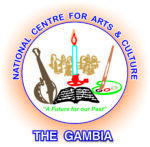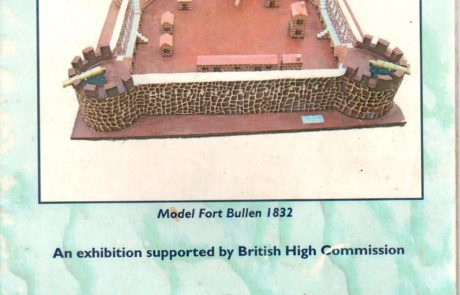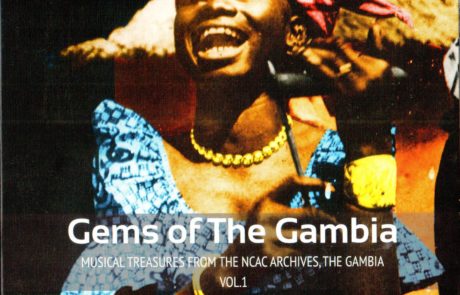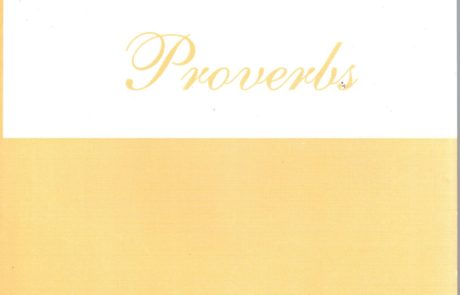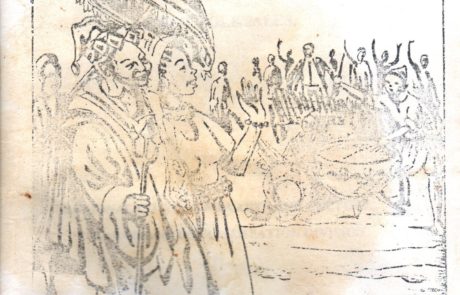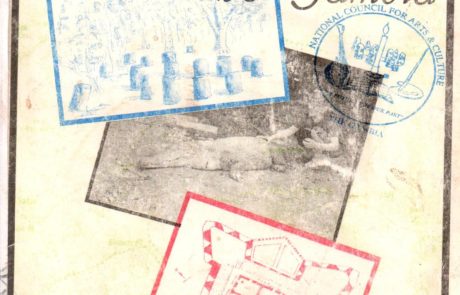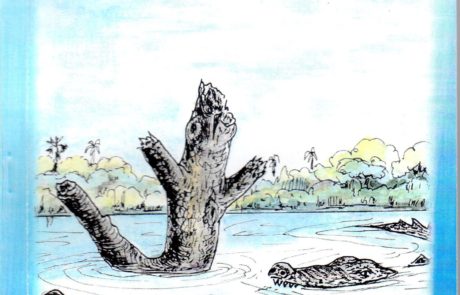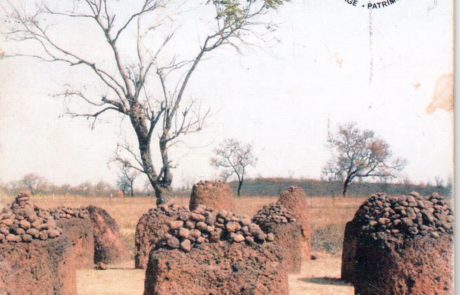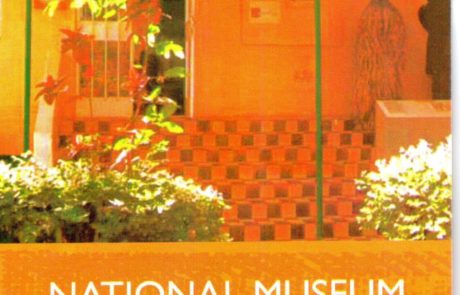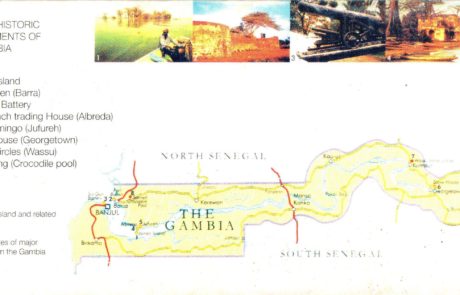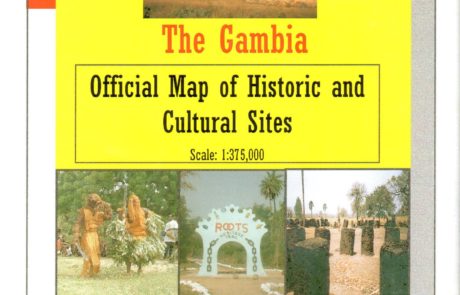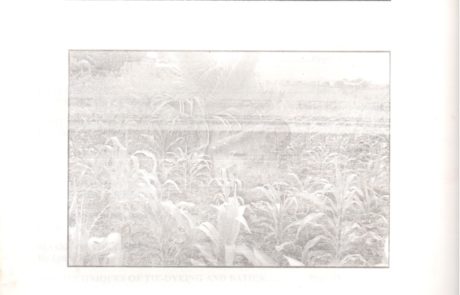Oral Archives – Research and Documentation (RDD)
A brief history
The RDD started life as the Cultural Archives and ultimately begot what is now known as the NCAC and its various departments. The cultural archives was established in 1971 as a branch of the Public Records Office under the Office of the President of the Gambia with Bakary Sidibeh as its first Research Officer with the special responsibility of collecting both oral traditions and material items of culture for the beginning of a Gambia National Museum.
This was a time when there was growing recognition of the values of oral literature and music by scholars abroad. Gambians realised almost too late that our traditional culture was rapidly changing. For example, the art of the Griot was seriously threatened. Griotsbegan to lose interest in reciting history and turned more and more to entertainment. Village elders and storytellers were finding fewer young people interested and having time to listen to them. Old people are not like books which can be stored for generations without too much harm, waiting until someone can get round to read them. Traditional ceremonies, songs, cultural games and dances were being abandoned. The growing trend of democracy was weakening class lines and the caste system, undermining the traditional role of craftsmen such as weavers, smiths, leatherworkers, etc. just as was the competition for machine manufactured goods. Most of the masters of music, traditions and handicrafts were aged, between 50-70, and few young men were around to take their places. Since most of our knowledge is transmitted verbally and by demonstration, when these masters were no longer around, their knowledge would die with them.
This awareness led to a desire among some Gambians, to preserve for posterity at least some record of what that generation of masters and elders had to offer. At the time there was no financial provision or expertise to start a systematic collection. The only ones who seemed to have enough interest and money to work with oral traditions were foreign scholars. Though a Public Records Act was promulgated in 1969 imposing the deposit of copies of taped material by researchers, there was no one to enforce this law until the appointment of Mr Sidibeh who was also charged with supervision of foreign scholars. By this time several universities have taught their students that it is a gesture of scholarly courtesy to deposit such works with ones host country.
Between 1971-1972 Ms Winifred Galloway, a PhD scholar from Indiana University worked with Mr Sidibeh on a series of interviews on the political history of pre-colonial Gambia. This research essentially became a pilot study for the kind of work prepared for the cultural archives. In 1974, the Cultural Archives became the Oral History and Antiquities Division (OHAD), and was detached from the Records Office and moved to the site of the present National Museum. In 1975 Dr Galloway returned to OHAD under the auspices of the Peace Corps and between 1997 and 1980 other Peace Corps volunteers contributed in editing and organising publications.
By 1981 the staff was further augmented with the appointment of a Gambian Research Officer and an Antiquities Officer. The Research Officer was assigned the study of Jola traditions and the collection of their material culture for the museum, while the Antiquities Officer took on the job of management and preservation of monuments and heritage sites.
This in brief is the genesis of the oral archives and partially the history of the National Centre for Arts and Culture which is responsible for the archive, as well as museums and heritage sites, and the development of the creative and performing arts in the Gambia.
Today the Research and Documentation Division has a collection of over 5000 audio-visual recordings that are fundamental to understanding the history of the Gambia in particular, and the greater Senegambia in general. The material relates to inter-alia, the empire of Kaabu, a powerful federated kingdom that governed the regions of Gambia, southern Senegal (Casamance) and northern Guinea-Bissau from the late 13th to the mid 19th centuries. The areas covered include relations with neighbouring Fuuta Jalon in present-day Guinea-Conakry (18th-19th centuries); the origins of Kaabu in the 13th century, and the federation’s subsequent social structure; the relationship between various ethnic groups in the region dating back at least to the 18th and 19thcenturies. The recordings were made between the 1960s and 1980s, but as history in Africa is an oral genre, they relate strongly to pre-industrial societies in this part of Africa. These recordings covering Gambian, Senegalese and Bissau-Guinean history mean that the collection is one of the most extensive in the West African sub-region. The collection could serve as a research centre for the University of The Gambia. If better preserved and publicized, it would certainly attract a greater number of scholars to do research in The Gambia, and could help in revitalizing interest in pre-colonial Western African states in the global academy.
The importance of the collection is accentuated by its breadth. The fact that the material relates to the whole sub-region and not just The Gambia alone make the holdings of great historical value. Moreover, the importance of this region in early Atlantic history means that this importance transcends even the sub-region and relates to whole global historical process of the last several centuries. Adding to the importance of the collection is the sad loss of the oral history archive in Guinea-Bissau during the civil war there in 1998.
Research
The RDD is indeed the research arm of the NCAC. It supports the research component in all the other sectors of the NCAC such as in museum exhibition development, music, and literature and for administrative purposes. The RDD also used to have a Cultural Advisory Services which conducted research for NGOs and other institutions interested in data connected to culture to support development projects. Research remains an ongoing element in the RDD mandate. The output of the research done by RDD staff finds its way into the oral archives.
The RDD also issues research permits to external scholars interested in researching on culture, history, and traditions in The Gambia. At a fee, the scholar is issued a permit which enables him to access the RDD resources and historic and cultural sites throughout the country. The research permit could also facilitate immigration formalities for foreign scholars. One conditionality for the issuance of the permit is that the scholar must deposit a copy of their research findings at the RDD. In this way, the RDD collection of tapes and monographs continues to grow.
Library Services
The RDD has an extensive library of books and monographs on various topics covered by the NCAC mandate such as musicology, museology, archaeology, history, and traditions. There is also a newspapers library holding bound volumes of Gambian newspapers published in the past thirty years such as Senegambia Sun, Daily Observer, Point, Topic Magazine etc.
Most recently, a poetry library is being hosted at the RDD aimed at promoting the reading culture, especially among children.
Audio visual collections
The RDD has 5000 audio tapes on various aspects of Gambian history, culture, genealogy, traditions, folklore and music. These are in various media such as cassettes, reels, CDs and now a large part has been digitized. Most of these audio files have also been transcribed into English from the national language originals and the transcriptions are kept in files, which are also being digitized.
A small part of the tapes are videos of Gambian ceremonies and festivals.
The studio
There is now within the RDD a well equipped studio where technicians work to transfer audio and video tapes from their original media into digital copies. The studio also has got the facilities to record and play back sound and video.
Publications
In pursuance of its mandate of publishing material on aspects of Gambian history and culture, the NCAC has over the past two decades published books, monographs, occasional papers and video and audio. Below is a catalogue of some of these publications:
River Safari in Gambia Video
Musical Treasures from the NCAC Archives
